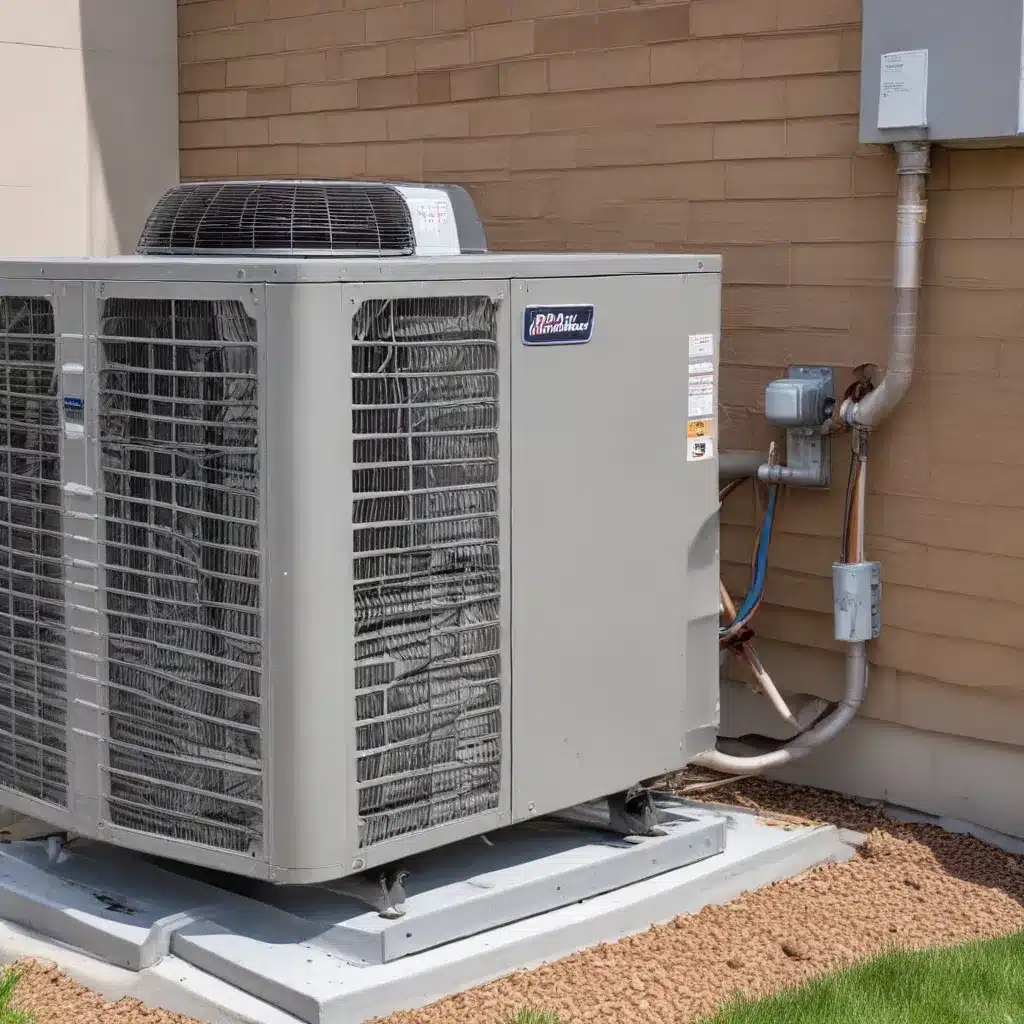
As an experienced air conditioning specialist, I’ve had the privilege of working with a wide range of HVAC systems over the years. From installing cutting-edge climate control solutions to troubleshooting tricky maintenance issues, I’ve seen it all. And let me tell you, the world of heating, ventilation, and air conditioning is constantly evolving, with new technologies and best practices emerging all the time.
One thing that has become increasingly clear to me is the crucial role HVAC systems play in maintaining the health and well-being of building occupants. After all, these systems are the “lungs” of a structure, responsible for circulating air, regulating temperature and humidity, and ensuring the indoor environment is comfortable and safe.
The Importance of Indoor Air Quality (IAQ)
Did you know that people spend over 80% of their time indoors? That’s a staggering statistic, and it underscores the importance of maintaining exceptional indoor air quality (IAQ). Poor IAQ can have a direct impact on occupant health, leading to a range of respiratory issues, allergies, and even the spread of infectious diseases like COVID-19.
As an air conditioning specialist, I’ve seen firsthand the negative consequences of neglecting IAQ. Improperly maintained HVAC systems can harbor all sorts of microbial contaminants, from mold and bacteria to viruses and even hazardous particulate matter. These pollutants can then be circulated throughout a building, causing serious problems for the people inside.
Optimizing HVAC Efficiency and Performance
But it’s not just about IAQ – HVAC systems also play a crucial role in energy efficiency and overall building performance. After all, these systems are responsible for a significant portion of a building’s energy consumption, with some estimates indicating they account for up to 60% of a structure’s total energy use.
That’s why it’s so important to ensure your HVAC system is running at peak efficiency. By optimizing the performance of your air conditioning and heating equipment, you can not only improve indoor comfort and air quality but also achieve significant cost savings and reduce your carbon footprint.
Leveraging Sustainable HVAC Technologies
One of the most exciting developments in the HVAC industry has been the rise of sustainable technologies. From renewable energy-powered systems to advanced heat recovery solutions, there are now more ways than ever to create efficient, environmentally-friendly climate control systems.
Take, for example, the use of geothermal heat pumps. These innovative systems tap into the constant temperature of the earth to provide highly efficient heating and cooling, often significantly reducing energy consumption compared to traditional HVAC units. And the best part? They can be integrated seamlessly into new construction or retrofitted into existing buildings.
Implementing Effective Maintenance Protocols
Of course, even the most cutting-edge HVAC technology won’t perform at its best without proper maintenance. As an air conditioning specialist, I can’t stress enough the importance of regular servicing and upkeep for your climate control system.
From changing air filters to cleaning coils and ensuring proper airflow, there are a number of proactive steps you can take to keep your HVAC system running smoothly. And the benefits of diligent maintenance go far beyond just improved efficiency – it can also extend the lifespan of your equipment, reduce the risk of breakdowns, and even improve indoor air quality.
Prioritizing Safety and Compliance
Another critical aspect of HVAC system management is ensuring compliance with safety standards and regulations. After all, these complex mechanical systems involve a range of electrical and mechanical components that, if not properly maintained, can pose serious risks to occupants.
As an air conditioning specialist, I’ve seen the consequences of cutting corners when it comes to safety. From electrical hazards to fire risks, neglecting the safety aspects of HVAC systems can have devastating consequences. That’s why it’s so important to work with experienced, licensed professionals who can ensure your climate control equipment is up to code and operating safely.
The Future of HVAC: Smart Technologies and Intelligent Control
One of the most exciting developments in the world of HVAC is the rise of smart technologies and intelligent control systems. These innovative solutions leverage cutting-edge sensors, automation, and data analytics to optimize the performance of climate control equipment – all while providing invaluable insights into energy usage, occupant comfort, and system health.
Imagine a future where your HVAC system can automatically adjust to changing environmental conditions, monitor for potential issues, and even communicate with other building systems to create a truly integrated, holistic approach to climate management. This is the promise of the smart HVAC revolution, and it’s a future that’s rapidly becoming a reality.
Conclusion: Embracing the Future of Sustainable, Healthy Climate Control
As an air conditioning specialist, I’m truly excited about the future of HVAC systems and the role they’ll play in creating healthier, more comfortable, and more energy-efficient built environments. By embracing the latest sustainable technologies, implementing rigorous maintenance protocols, and leveraging the power of smart control systems, we can optimize the performance of climate control equipment and ensure the well-being of building occupants.
If you’re in the market for a new HVAC system or looking to upgrade your existing equipment, I encourage you to explore the wide range of solutions available from Hamilton Air Conditioning. Our team of experienced professionals is dedicated to providing top-notch climate control systems and unparalleled customer service. Together, we can create a healthier, more comfortable, and more sustainable indoor environment – one that truly puts the well-being of people first.